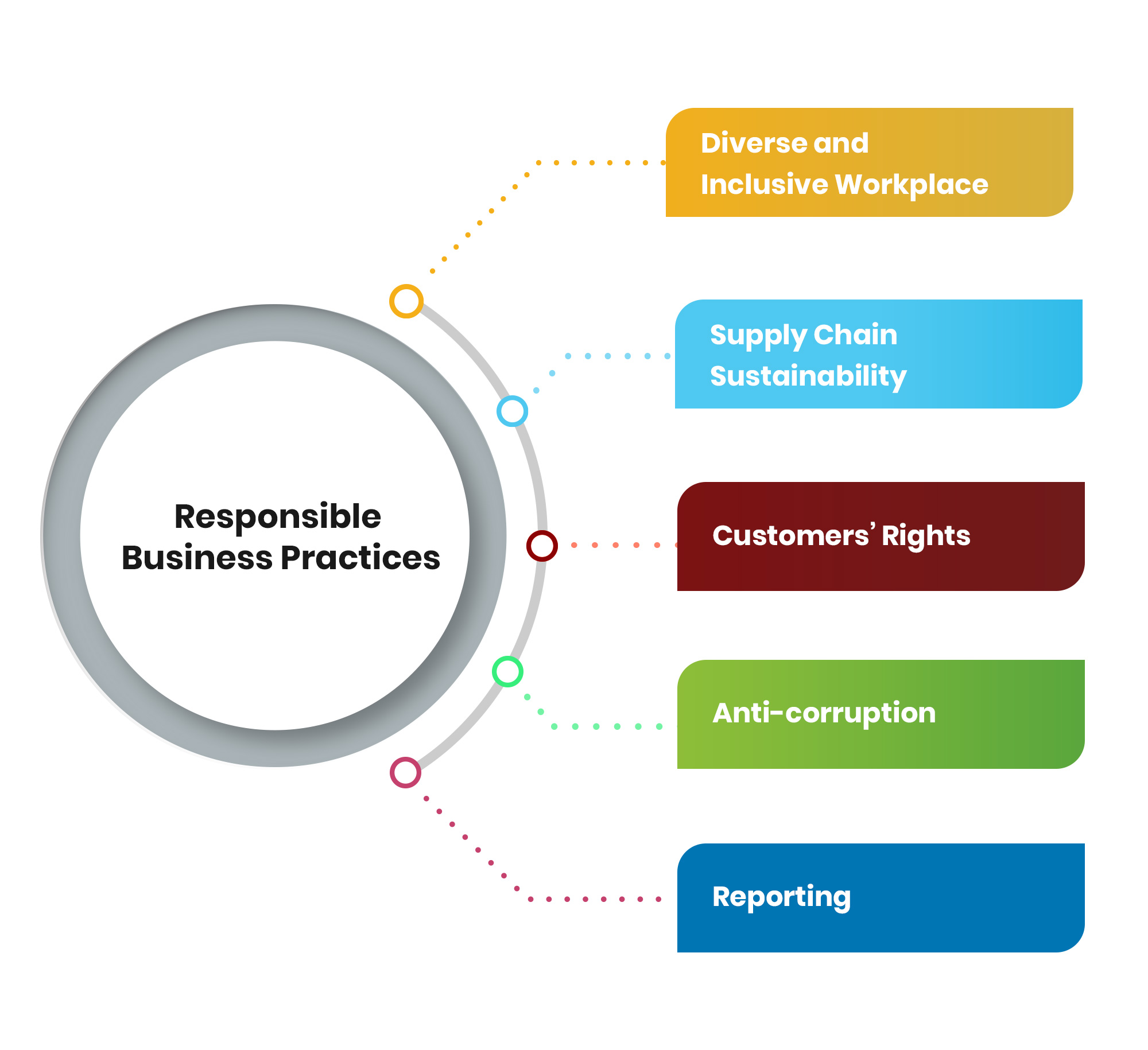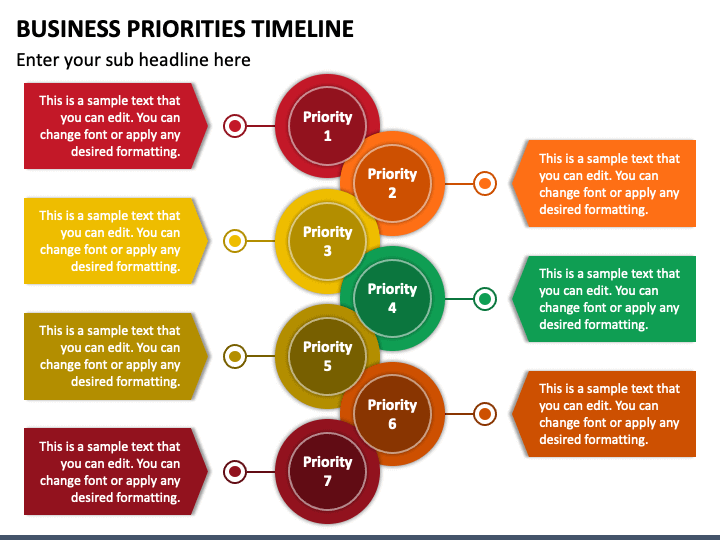10 priorities for responsible business practices inventory author – As the significance of responsible business practices continues to soar, the role of inventory authors becomes paramount. This guide delves into the concept, priorities, and implementation strategies for responsible business practices, empowering inventory authors to create effective inventories that drive positive change.
This comprehensive resource provides a roadmap for understanding the intricacies of responsible business practices, enabling inventory authors to make informed decisions and contribute to a more sustainable and ethical business landscape.
Define Responsible Business Practices

Responsible business practices refer to the ethical and sustainable practices that businesses adopt to minimize their negative impact on society and the environment while maximizing their positive contributions. These practices encompass a wide range of aspects, including environmental stewardship, social responsibility, and economic sustainability.
Responsible business practices are essential for several reasons. They help businesses mitigate risks, enhance their reputation, and build trust with stakeholders. Additionally, they promote innovation and long-term profitability, contributing to the overall well-being of society.
Examples of Responsible Business Practices
- Environmental Stewardship:Reducing carbon emissions, conserving water and energy, minimizing waste, and protecting biodiversity.
- Social Responsibility:Respecting human rights, promoting diversity and inclusion, ensuring fair labor practices, and supporting local communities.
- Economic Sustainability:Operating ethically, paying fair taxes, investing in employees, and contributing to economic growth.
Identify 10 Priorities for Responsible Business Practices
Responsible business practices encompass a comprehensive set of ethical and sustainable principles that guide organizations in operating in a socially responsible manner. By adhering to these priorities, businesses can contribute positively to society and the environment while enhancing their reputation and long-term success.
Here are 10 key priorities for responsible business practices:
1. Ethical Conduct
Businesses should adhere to ethical principles in all their operations, including decision-making, relationships with stakeholders, and compliance with laws and regulations.
- Example: Patagonia, a clothing company known for its commitment to environmental sustainability and ethical sourcing.
2. Transparency and Accountability
Businesses should be transparent in their operations and accountable for their actions. This includes disclosing relevant information to stakeholders, including financial performance, environmental impact, and social responsibility initiatives.
- Example: Unilever, a consumer goods company that publishes a comprehensive sustainability report annually.
3. Respect for Human Rights
Businesses should respect the human rights of all individuals, including employees, customers, and suppliers. This includes ensuring fair wages, safe working conditions, and non-discrimination.
- Example: Nike, a sportswear company that has implemented programs to combat forced labor in its supply chain.
4. Environmental Sustainability
Businesses should minimize their environmental impact by reducing waste, conserving resources, and transitioning to renewable energy sources.
- Example: Interface, a flooring company that has achieved zero waste in its manufacturing operations.
5. Community Involvement
Businesses should actively engage with the communities in which they operate, supporting local initiatives and addressing social issues.
- Example: Walmart, a retail chain that has invested in community development programs in underserved areas.
6. Customer Focus
Businesses should prioritize customer satisfaction by providing quality products and services, addressing customer concerns, and respecting customer privacy.
- Example: Amazon, an e-commerce company that has built a reputation for excellent customer service.
7. Supplier Responsibility
Businesses should ensure that their suppliers adhere to responsible business practices, including ethical conduct, environmental sustainability, and respect for human rights.
- Example: Apple, a technology company that has implemented strict supplier codes of conduct.
8. Diversity and Inclusion, 10 priorities for responsible business practices inventory author
Businesses should promote diversity and inclusion in their workforce and create an environment where all employees feel valued and respected.
- Example: Google, a technology company that has been recognized for its efforts to foster a diverse and inclusive workplace.
9. Innovation and Responsibility
Businesses should embrace innovation to develop products and services that meet social and environmental needs.
- Example: Tesla, an electric car company that is pushing the boundaries of sustainable transportation.
10. Long-Term Thinking
Businesses should adopt a long-term perspective in their decision-making, considering the impact of their actions on future generations and the environment.
- Example: Unilever, a consumer goods company that has set ambitious sustainability goals for 2030.
Inventory Author
The inventory author plays a crucial role in fostering responsible business practices. They are responsible for creating and maintaining an inventory that accurately reflects the company’s commitment to sustainability and ethical conduct.
The inventory author’s responsibilities include:
- Conducting research on best practices in responsible business practices.
- Developing a framework for the inventory that is aligned with the company’s values and goals.
- Collecting and analyzing data on the company’s performance in each area of responsible business practices.
- Writing clear and concise reports that communicate the findings of the inventory to stakeholders.
- Working with management to develop and implement plans to improve the company’s performance in responsible business practices.
Creating an Effective Inventory
An effective inventory of responsible business practices should be:
- Comprehensive: The inventory should cover all aspects of the company’s operations, from environmental sustainability to social responsibility.
- Objective: The inventory should be based on facts and data, not on subjective opinions.
- Transparent: The inventory should be easily accessible to all stakeholders, both internal and external.
- Actionable: The inventory should provide clear guidance on how the company can improve its performance in responsible business practices.
Implement and Evaluate Responsible Business Practices

Implementing and evaluating responsible business practices is crucial for ensuring their effectiveness and continuous improvement. This involves a structured approach that includes:
Establish a Framework
Develop a comprehensive framework that Artikels the specific responsible business practices to be implemented. This framework should be aligned with the company’s values, mission, and industry best practices.
Integrate into Operations
Integrate responsible business practices into all aspects of the company’s operations, including supply chain management, production, marketing, and customer service. This ensures that these practices become an integral part of the company’s culture.
Measure and Evaluate
Establish metrics and indicators to measure the effectiveness of responsible business practices. This may include tracking progress towards sustainability goals, employee satisfaction, customer loyalty, and stakeholder engagement.
Continuous Improvement
Regularly review and assess the effectiveness of responsible business practices and identify areas for improvement. This involves seeking feedback from stakeholders, conducting audits, and exploring innovative approaches.
Communicate and Report on Responsible Business Practices
Communicating responsible business practices is crucial for businesses to build trust, transparency, and accountability with their stakeholders. By effectively communicating their sustainability efforts, businesses can demonstrate their commitment to social responsibility and ethical operations.
There are various methods for communicating responsible business practices, including:
Reports and Disclosures
- Sustainability reports provide comprehensive information about a company’s environmental, social, and economic performance.
- Corporate social responsibility (CSR) reports focus on a company’s social and environmental initiatives.
- Integrated reports combine financial and sustainability information to provide a holistic view of a company’s performance.
Online Communication
- Websites and social media platforms allow businesses to share their sustainability initiatives with a wider audience.
- Online platforms can be used to engage with stakeholders and respond to their questions or concerns.
External Communication
- Press releases and media interviews can be used to announce sustainability milestones or initiatives.
- Partnerships with non-profit organizations and industry associations can help businesses amplify their sustainability message.
Effective communication strategies for responsible business practices include:
- Using clear and concise language that is accessible to all stakeholders.
- Providing specific examples and data to support sustainability claims.
- Regularly updating communication channels with new information and progress reports.
- Engaging with stakeholders and responding to their feedback.
Conclusion: 10 Priorities For Responsible Business Practices Inventory Author
In conclusion, the 10 priorities for responsible business practices serve as a guiding framework for inventory authors, empowering them to create comprehensive inventories that drive positive organizational change. By embracing these priorities and leveraging the guidance provided in this guide, inventory authors can contribute to a more responsible and sustainable business ecosystem.
Common Queries
What is the primary role of an inventory author in responsible business practices?
Inventory authors are responsible for creating and maintaining an inventory of all responsible business practices implemented within an organization, ensuring their alignment with the organization’s overall sustainability and ethical goals.
How can inventory authors measure the effectiveness of responsible business practices?
Inventory authors can measure the effectiveness of responsible business practices by tracking key performance indicators (KPIs) related to environmental, social, and governance (ESG) factors. These KPIs can include metrics such as energy consumption, waste reduction, employee satisfaction, and community engagement.
